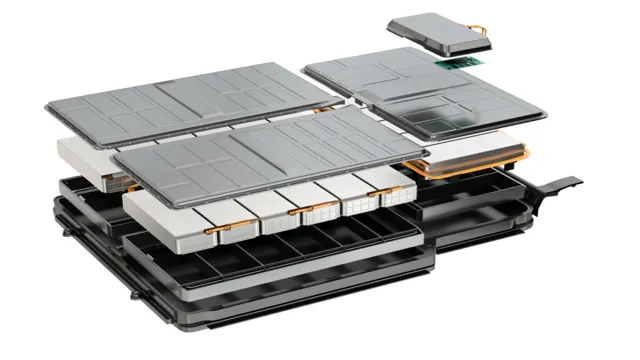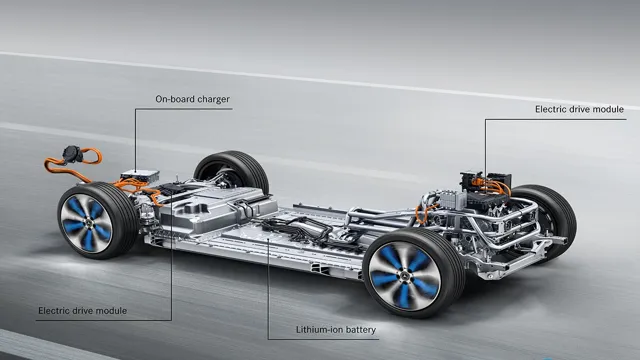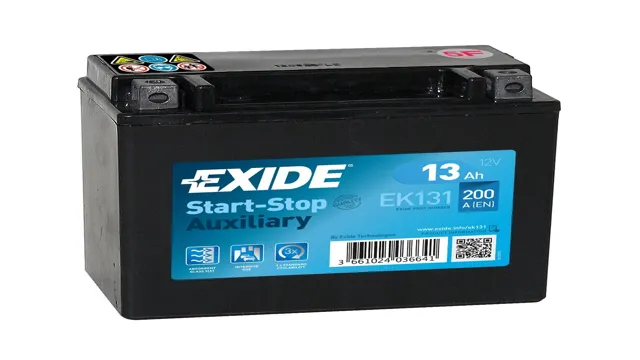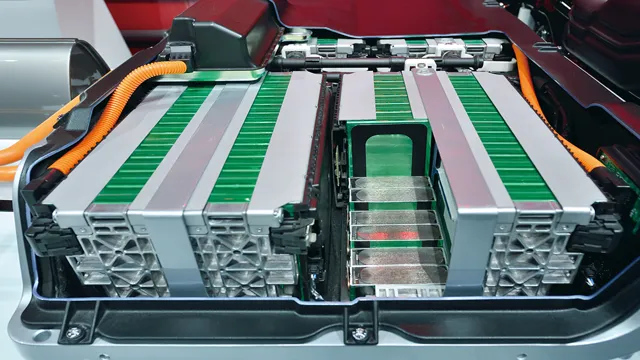Revving Up the Truth: The Real Story on Recycling Electric Car Batteries
Recycling electric car batteries is a crucial step towards achieving sustainable transportation. Electric cars have become increasingly popular due to their environmental benefits. However, the batteries used in these vehicles have a limited lifespan and need to be disposed of properly.
If not disposed of correctly, they can be harmful to the environment. In this blog post, we will cover some key facts and figures about recycling electric car batteries. We will discuss the importance of battery recycling, how the process works, and what happens to the materials after recycling.
So, buckle up and let’s explore the world of recycling electric car batteries!
Types of Electric Car Batteries
Yes, electric car batteries are recyclable. But before we discuss the recycling process, let’s talk about the different types of electric car batteries. The most common type of battery used in electric cars is the lithium-ion battery.
These batteries are made up of different components such as the anode, cathode, separator, and electrolyte. Another type of electric car battery is the nickel-metal hydride battery. These are less common but can still be found in some electric vehicles.
The recycling process for electric car batteries is a complex one. It involves the disassembly of the battery pack and the separation of its components. The components are then processed and refined to produce new batteries or other products.
The recycling process is crucial in reducing the environmental impact of electric cars. Not only does it prevent the accumulation of toxic waste, but it also conserves valuable resources like lithium and cobalt. So, to answer the question, yes, they do recycle electric car batteries, and it’s an essential process in sustainable transportation.
Lithium-Ion Batteries
Lithium-Ion Batteries Electric cars have taken the world by storm, and one of their most crucial components is the battery that powers them. While there are many different types of batteries, lithium-ion batteries are often the go-to for electric vehicles. Lithium-ion batteries are incredibly lightweight and powerful, making them efficient and long-lasting.
They are also rechargeable, making them an excellent eco-friendly option. However, there are different types of lithium-ion batteries, such as nickel-manganese-cobalt batteries and lithium iron phosphate batteries. Each type has its own advantages and disadvantages, such as cost, energy density, and safety.
It is essential to research and compare the different battery types to find the one that best suits your needs. Regardless of the type of lithium-ion battery, they have revolutionized the way we think about electric cars and the future of renewable energy.
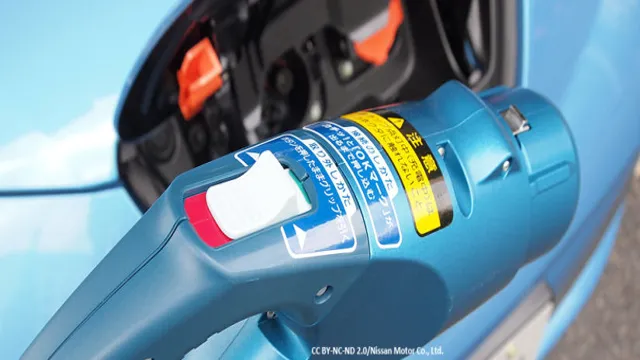
Nickel Metal Hydride (NiMH)
NiMH batteries are among the various types of electric car batteries available in the market. These rechargeable batteries are made up of nickel and a metal hydride that stores and releases energy during the charge and discharge process. One of the advantages of NiMH batteries is their high energy density, which means they are capable of storing more energy than other battery types.
This attribute is essential in electric vehicles as it allows them to travel longer distances on a single charge. NiMH batteries also have a relatively long lifespan, making them a suitable option for electric vehicle owners looking for a battery that can last for several years. Furthermore, these batteries are environmentally friendly as they contain fewer toxic materials than traditional lead-acid batteries.
However, NiMH batteries are prone to self-discharge, which means they lose energy over time, even when they are not in use. Overall, NiMH batteries are one of the preferred choices for powering electric vehicles due to their energy density, longevity, and environmental friendliness.
Lead-Acid Batteries
Lead-Acid Batteries When it comes to electric car batteries, there are a few different types available in the market. One such type is the lead-acid battery, which has been around for a long time and is also commonly used in traditional gasoline-powered cars. These batteries are relatively inexpensive and can be easily recycled, making them a popular choice for manufacturers.
However, they are also quite heavy and have a shorter lifespan compared to other types of batteries. Additionally, lead-acid batteries take longer to charge and may require more maintenance over time. While they may not be the most advanced battery option, lead-acid batteries still play an important role in the electric vehicle industry and can be a good choice for those on a budget or who need a reliable backup power source.
Recycling Process for Electric Car Batteries
The short answer is yes, electric car batteries are recycled. In fact, recycling electric car batteries is becoming more and more important as the popularity of electric vehicles increases. The process of recycling these batteries usually involves three main steps.
First, the battery is collected and transported to a recycling facility where it is broken down into its component parts. Next, the individual parts are separated into different streams, such as metals, plastics, and chemicals. Finally, these materials are processed and transformed into new products that can be used in a wide range of applications, from construction to electronics.
This process not only reduces waste and conserves natural resources but also helps to reduce the carbon footprint associated with the production of new batteries. So, the next time you’re wondering what happens to your electric car battery when it needs replacing, rest assured knowing that it can be recycled and used again.
Battery Sorting and Disassembling
Recycling Process for Electric Car Batteries When it comes to recycling electric car batteries, the process involves several steps, including battery sorting and disassembling. The first step is to identify the type of battery and sort them accordingly. This is important because different types of batteries require different recycling techniques.
For instance, lithium-ion batteries are commonly used in electric cars and powering portable devices. These batteries contain valuable metals like cobalt, nickel, and lithium that can be recycled. Once the batteries are sorted, the next step is disassembling.
This involves breaking down the battery into its component parts, including the casing, electrodes, and electrolyte. The components can then be processed to extract valuable metals and materials. The casing can be shredded and used for other purposes, while the electrodes and electrolyte can be processed to extract valuable metals like cobalt.
Recycling electric car batteries is crucial to reduce environmental pollution and conserve natural resources. It also reduces the cost of manufacturing new batteries since precious metals and materials can be reused. In addition to recycling, electric car manufacturers are also developing sustainable battery technologies that are both environmentally friendly and cost-effective.
These efforts will go a long way in ensuring a sustainable future for electric cars, as well as reducing the environmental impact of the transportation industry.
Battery Chemistry Separation
The recycling process for electric car batteries involves separating the different types of battery chemistry that make up the battery. Electric car batteries typically use a combination of nickel, cobalt, manganese, and lithium to create the chemical reaction that powers the car. These materials can be extracted from the battery and reused in other industries or in new batteries.
The separation process is done through heat and chemical treatment, which breaks down the battery into its component parts. Once separated, each material is cleaned and processed for reuse before being sold to manufacturers. This process helps to reduce the environmental impact of electric car batteries and ensures that valuable materials are not wasted.
By recycling electric car batteries, we can extend the lifespan of the materials used and decrease our reliance on mining new resources.
Hydrometallurgical Processing
As the popularity of electric vehicles continues to rise, the need for sustainable methods of recycling their batteries becomes increasingly crucial. Hydrometallurgical processing has emerged as one such method, that involves using chemical processes to extract valuable metals from the batteries. The process begins with separating the battery into its individual components, such as the cathode, anode, and electrolyte.
The components are then dissolved or leached in a solution that contains specific chemicals to extract the metals, such as cobalt, lithium, and nickel. These metals are then purified and sold to manufacturers to be used in the production of new batteries. Not only does this method offer a more sustainable option for recycling electric vehicle batteries, but it also helps to reduce the demand for new mining and the environmental impact of extracting these metals from the earth.
Hydrometallurgical processing provides a closed-loop system, where end-of-life batteries can be recycled to extract valuable metals, thus contributing to the circular economy.
Benefits of Recycling Electric Car Batteries
Yes, electric car batteries can be recycled! In fact, recycling these batteries is incredibly important for a variety of reasons. First and foremost, recycling reduces waste and helps to protect the environment, keeping potentially harmful chemicals and materials out of our landfills. Additionally, recycling electric car batteries can also help to conserve natural resources by extracting valuable materials such as lithium and cobalt for reuse in future batteries.
It can also help to reduce the cost of electric vehicles overall by lowering the price of new batteries made with recycled materials. So, while electric car batteries may seem like a daunting waste problem at first, there are actually many benefits to recycling them and it’s an important step we can take towards a more sustainable future.
Reduction in Carbon Footprint
Electric Car Battery Recycling Recycling electric car batteries is an effective way to reduce our carbon footprint and protect the environment. One of the biggest benefits of recycling electric car batteries is that it decreases the demand for new batteries, which are made from materials like nickel and lithium. These materials are extracted through mining, which is a highly energy-intensive and environmentally damaging process.
Recycling these batteries reduces the environmental impact of battery production and saves resources. Besides, recycling electric car batteries contributes to the circular economy by recovering valuable materials from the batteries that can be reused in other products. Therefore, by recycling electric car batteries, we can decrease our dependence on raw materials, protect the planet, and work toward a more sustainable and cleaner future.
Conservation of Natural Resources
Recycling electric car batteries can provide numerous benefits when it comes to the conservation of natural resources. Not only does recycling these batteries reduce the amount of waste that would typically end up in landfills, but it also reduces the need for new batteries to be produced. This, in turn, conserves valuable materials such as lithium, cobalt, and nickel that are used in the production of these batteries.
By recycling these materials, we can reduce our collective carbon footprint and reduce our reliance on non-renewable resources. Additionally, recycling electric car batteries can also generate new job opportunities in the recycling industry. This shows that recycling electric car batteries is not only beneficial for the environment but also for the economy.
So, the next time you see an electric car on the road, remember that its battery can be recycled and reused to conserve natural resources and protect our planet.
Conclusion
In conclusion, recycling electric car batteries can be a complex process, but it’s crucial for the planet’s sustainability. These batteries contain valuable, finite resources that can be reused, reducing the need for new mining and production. Plus, proper recycling prevents harmful pollutants from entering the environment.
So the next time someone asks, “do they recycle electric car batteries?” you can confidently say, “Yes, they do! Because even the coolest cars need responsible maintenance.”
FAQs
What happens to electric car batteries once they can no longer hold a charge?
Electric car batteries are typically recycled to limit their environmental impact. This process involves extracting useful materials such as metals and reusing them for new batteries.
Is it expensive to recycle electric car batteries?
While the cost of recycling electric car batteries can vary, it is generally more expensive than recycling traditional lead-acid batteries. However, the growing demand for electric cars means that recycling methods are becoming more efficient and cost-effective.
What are the environmental benefits of recycling electric car batteries?
Recycling electric car batteries reduces the demand for new materials like lithium and cobalt, which are often obtained through environmentally harmful mining practices. It also helps keep toxic materials, like lead and mercury, out of landfills and water sources.
Can recycled materials from electric car batteries be used for other purposes besides making new batteries?
Yes, the metals and other materials extracted from electric car batteries during the recycling process can be used for other applications. For example, cobalt is used to make jet engines and alloys, while lithium is used in ceramics and glass.

